The Covid-19 virus aka coronavirus disrupted our personal and professional lives in 2024. Even though the virus claimed a lot of lives, the positive side in eradicating the threat of Covid-19 comes in the form of vaccinations.
Since the widespread coronavirus began, professionals from all around the globe started working day and night to develop a vaccination to combat the virus.
As a result of the hard work, today there are various coronavirus vaccinations available in different parts of the world that are either in the final stages of testing or have already begun to be administered to the local public.
In this age of digital media, lots of fake news and myths are being spread about the coronavirus vaccination, which is creating a lot of doubts and questions about the Covid-19 vaccine in the minds of the people.
It is essential to only follow reliable and accurate information related to the Covid-19 vaccine like the ones published on healthtap.com. To help you understand the facts & truth about the coronavirus vaccine, today we are here with a detailed article featuring all the correct and official information about the vaccine.
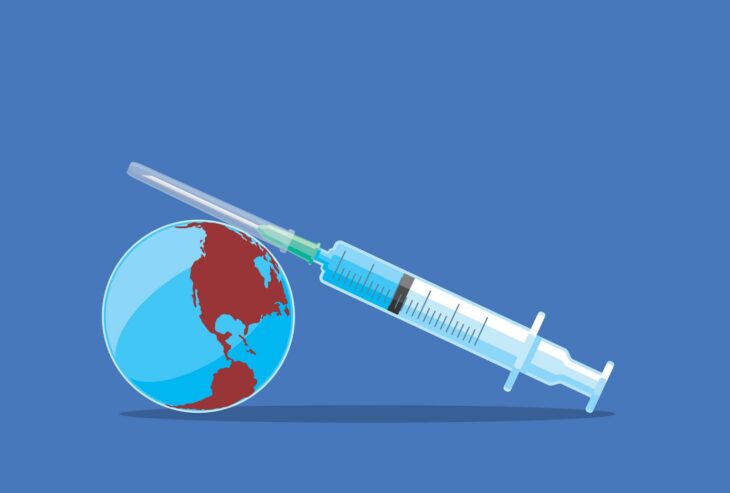
Source: CNBC
Contents
- Everything You Need to Know About the Coronavirus Vaccine in 2024
- How many coronavirus vaccines are out there?
- How Many Doses of Coronavirus Vaccine is Required?
- How Effective is a Single Dose of Coronavirus Vaccine?
- Should You Stop Smoking & Drinking After Taking Coronavirus Vaccine?
- Should You Get Covid-19 Vaccine If You’ve Already Been Affected by the Virus in the Past?
- Can You Avoid Covid-19 Protocols After Getting Vaccinated?
- Can You Take the Covid-19 Vaccination Shot if You’re Sick?
- Who Cannot Take the Covid-19 Vaccine?
There are at least four Covid-19 vaccines currently being administered out there. Vaccines from Pfizer, AstraZeneca, Sinopharm, and Moderna are the ones.
All of the three vaccinations are now being tested by national authorities of various countries as well as the experts from WHO. The Pfizer coronavirus vaccine is being manufactured within the European and U.S. based network of the company.
The Moderna vaccine is being produced in the United States, and also has received substantial funding and support from Operation Warp Speed, a project to mitigate the coronavirus implemented by the U.S.
Sinopharm is a Chinese drugmaker that has also developed a vaccine for the coronavirus. The vaccination is currently being produced in China, with the United Arab Emirates scheduled to begin local production later in 2024.
The AstraZeneca vaccine is being co-developed by Oxford University. The vaccine is currently being produced by the Serum Institute of India, the largest vaccine manufacturer in the world.
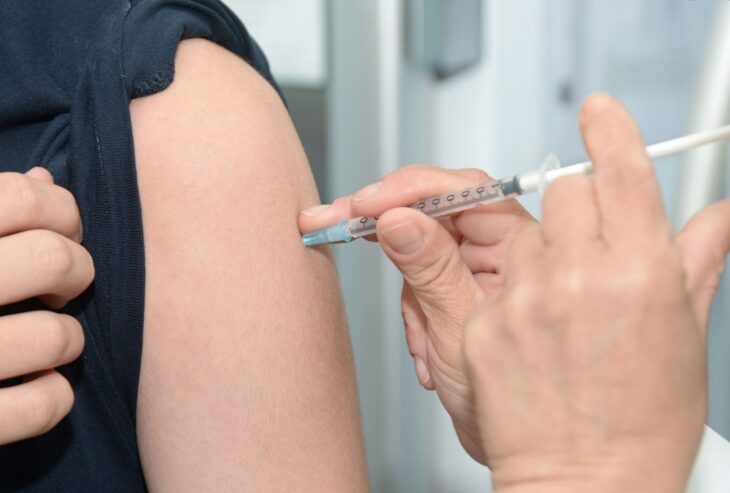
Source: Legacy Community Health
All coronavirus vaccines require two doses to be administered in order to be effective.
Out of the vaccines publicly available currently, some of them require the second vaccine shot to be taken within 21 days of the first shot, whereas for others, the time gap is 24 days.
Be sure to check with the medical institution from where you’re taking the vaccine about the second schedule.
Why does covid-19 vaccination have two doses instead of one?
BBC.com has a detailed published article on the reason why there are two Covid-19 vaccine doses which you can read here.
Even though a single dose of the Covid-19 vaccine can act as a barrier against coronavirus, the vaccine efficiency on your body increases after the second dose.
Based on the studies conducted, the second dose of the Covid-19 vaccine ensures that you get better protection against the deadly virus.
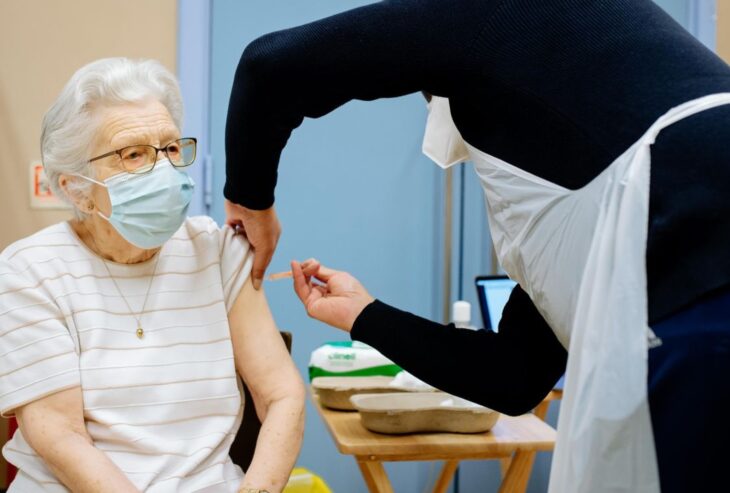
Source: Express & Star
Well, smoking or alcohol consumption is not good for your health in any case.
Talking about how smoking and alcohol affects your body’s immunity against the Covid-19 virus, there is a very little study conducted on the same.
However, smoking and alcohol have been found to hinder the body’s immunity against coronavirus.
Should You Get Covid-19 Vaccine If You’ve Already Been Affected by the Virus in the Past?
People who have contracted coronavirus in the past will have the immunity to resist the virus within their bodies.
However, according to experts, the effectiveness of this type of immunity is short-lived and does not guarantee that the person cannot contract the virus infection again.
Hence, it is recommended that even people who have got infected by the virus in the past also take the vaccination.
Experts also tell people who have contracted the virus earlier to wait for at least 30 days after the infection. The recommended wait period is 90 days if the patient has got the monoclonal cocktail/antibody administered during the virus infection.
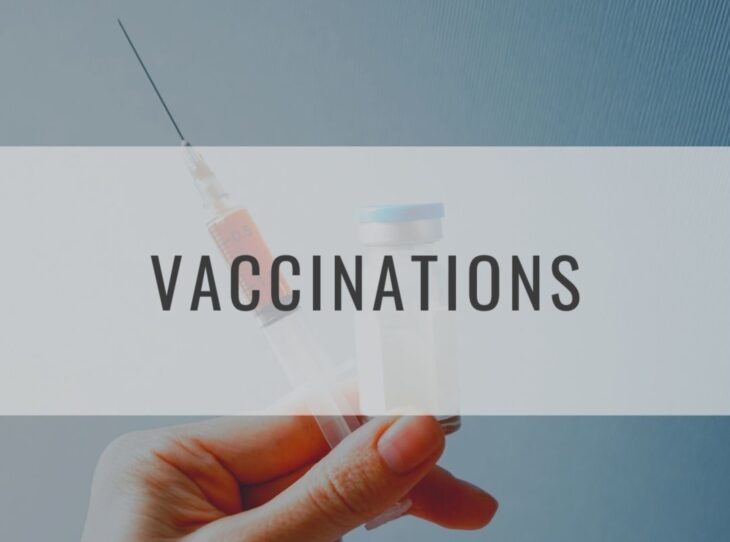
Source: Medium
Can You Avoid Covid-19 Protocols After Getting Vaccinated?
Definitely not!
Getting any Covid-19 vaccination does not mean that you are completely immune from the virus.
If you’ve been following the news, then you already know that none of the vaccines available currently are 100 percent effective in preventing coronavirus infection.
However, one point that all health experts confirm is that even if you do get infected by the coronavirus, it will most likely be asymptomatic if you are vaccinated.
This means that you will most likely not show any serious symptoms or health issues if you get infected by Covid-19 after vaccination.
Therefore, you must keep following covid-19 protocols including wearing masks & gloves, maintaining social distancing, sanitizing your hands, etc. even after receiving the vaccine shots.
Can You Take the Covid-19 Vaccination Shot if You’re Sick?
In case of a minor cough or cold, you will not have any issues for taking the Covid-19 vaccine shot.
However, if you’re running a high fever, have high blood pressure at the time of vaccination, or are seriously sick, then you will be turned away from getting the vaccine shot.
This is because your immunity needs to be in its best normal condition while receiving the coronavirus vaccine.
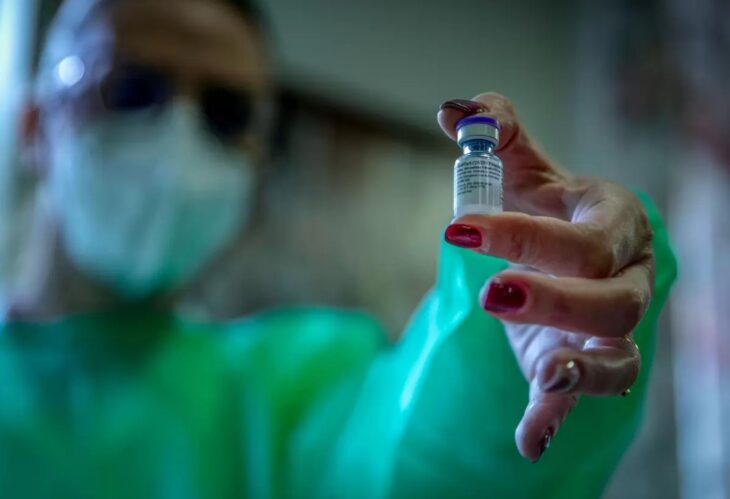
Source: The Portugal News
Who Cannot Take the Covid-19 Vaccine?
It’s not safe for everyone to get the covid-19 vaccine jab.
If a woman is pregnant or breastfeeding, then they aren’t eligible to get the vaccine.
Also, people with serious allergies to the vaccines should stay away from getting the shot.
Other categories of people who shouldn’t get the coronavirus vaccination include people with serious and long-term illnesses, autoimmune, or other underlying medical conditions.
People who belong to such categories should consult a doctor and get their opinion before getting the Covid-19 vaccine jab.
Final Words
As we mentioned earlier, there are several coronavirus vaccines in development and various stages of testing.
The specific vaccine(s) that will be available in your country is dependent on the local authority approvals and contracts.
Therefore, make sure to follow the updates from your local government to know more in detail about how the vaccine will be made available in your region.
